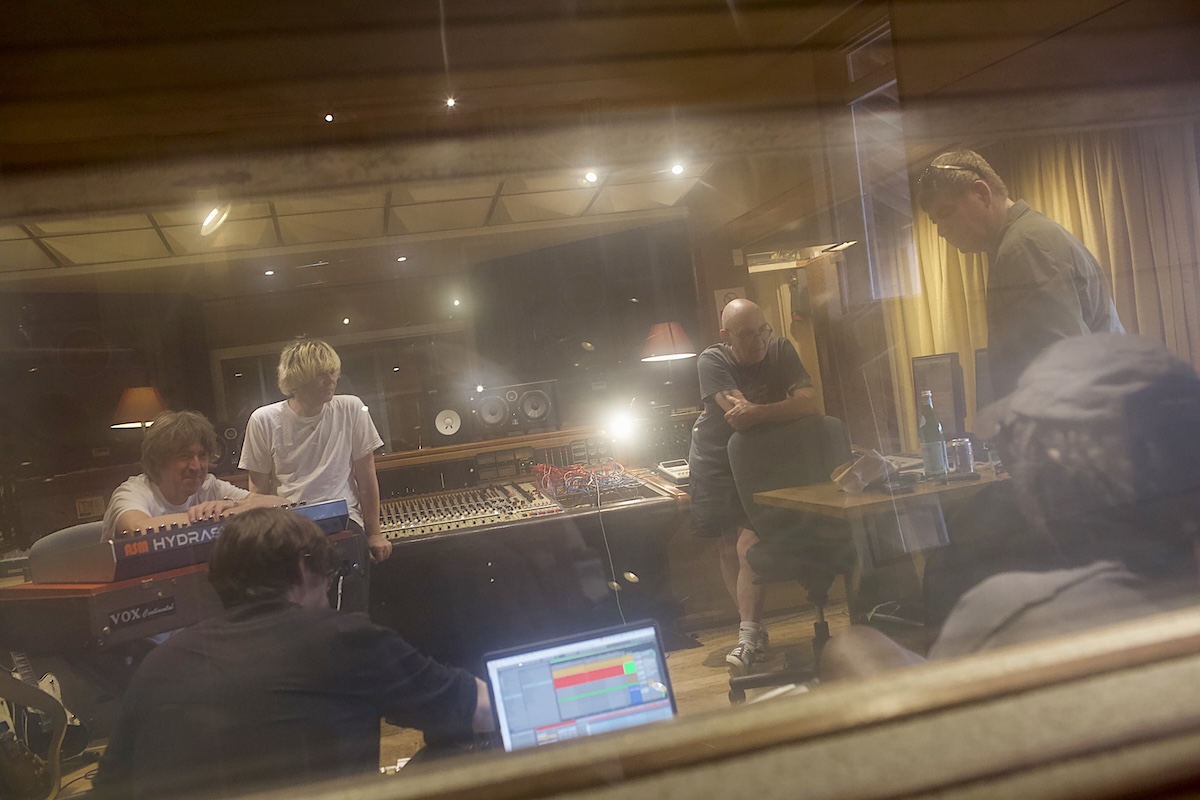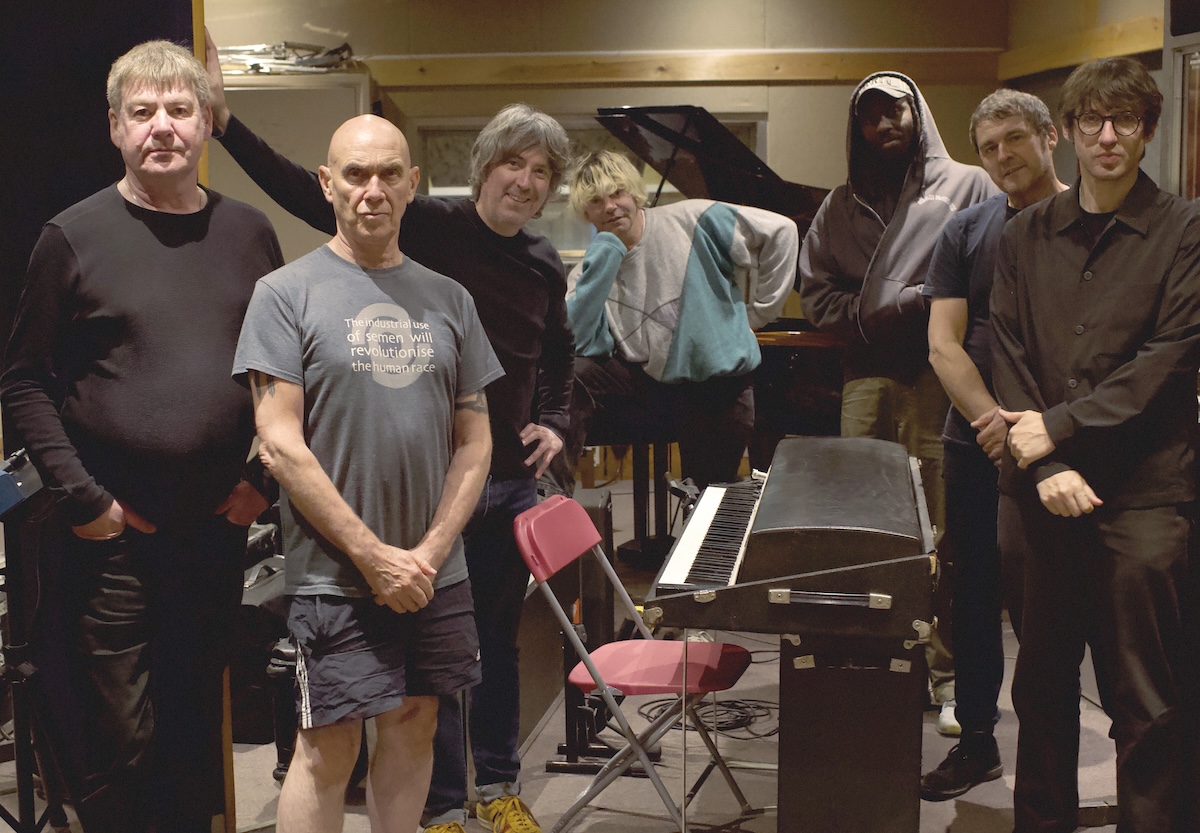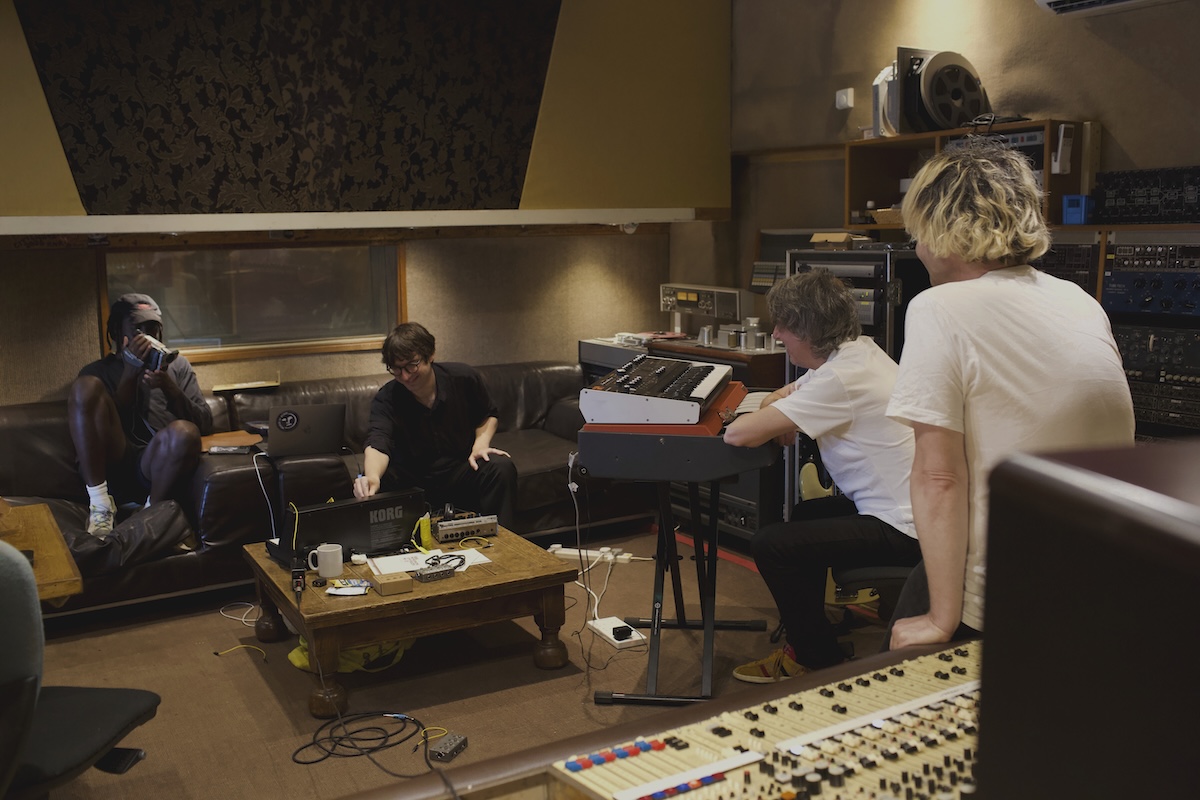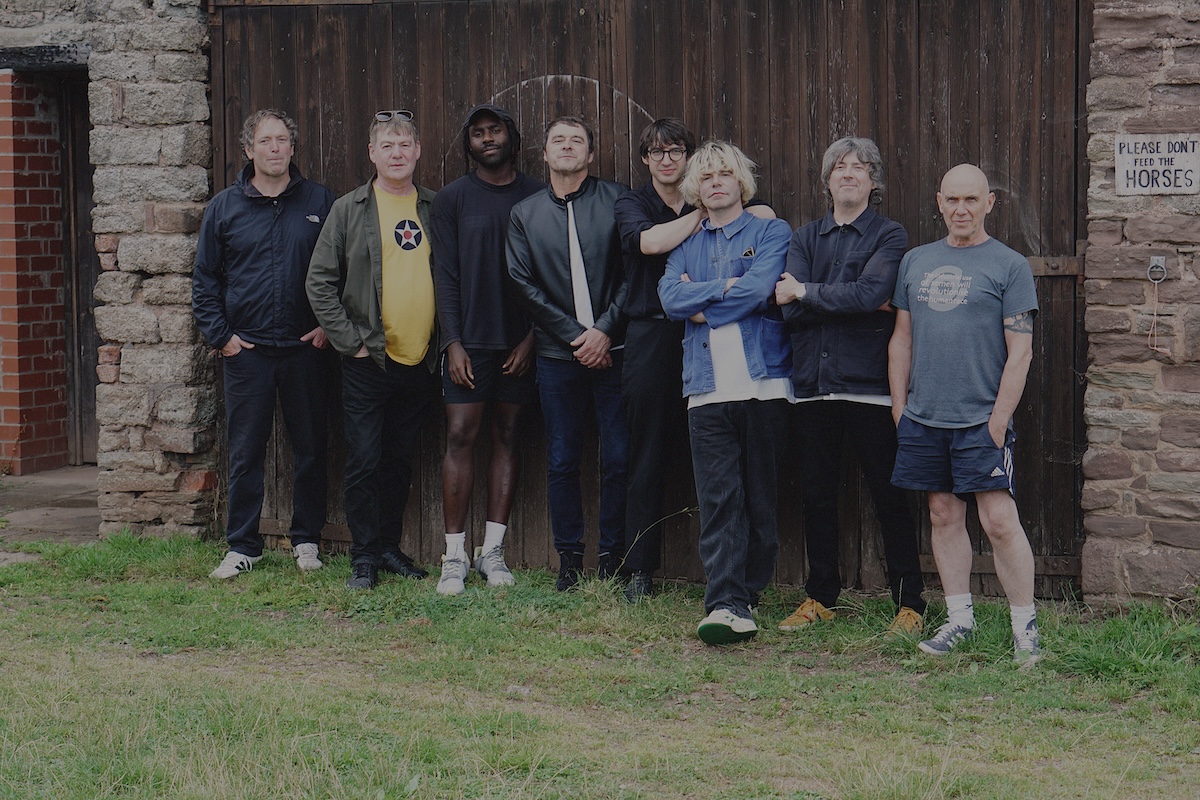The Charlatans were the first band I truly loved as an adult. They were the crest of the Madchester wave for me, carried forward by the Happy Mondays and the Stone Roses. What I didn’t realize then was that the Charlatans’ soul-shifting song “The Only One I Know,” and their transcendent debut album Some Friendly, were quietly preparing a down-filled mattress for me to fall back on when my mother died a month after their release.
Their music helped drown my grief, and I sank even deeper during their ecstatic live shows—of which I saw many—following them up and down the West Coast more than once, and experiencing them at festivals and hometown shows in their native U.K. I stayed with them through their smooth sail into and out of the Britpop era. It was easy to stick with them because—unlike so many of their ’90s contemporaries—they consistently made solid albums and never disbanded. When I pressed play on their latest, We Are Love, I felt an instant calm the moment Tim Burgess’ voice came in. It was like being gently deflated—not let down, but released from tension.
“I love that. That made the hairs stand up on the back of my neck,” Tim tells me when I share this with him. We’ve known each other a long time, me and Tim. We met through their drummer, the late Jon Brookes who died of brain cancer in 2013, at their show at the American Legion Hall in L.A. in 1995. I was there to interview them. Jon found me outside, sat with me on the steps, and chatted for a while before bringing me to the rest of the band. That’s the memory that always surfaces when I think of Jon—that first meeting, his kindness and warmth. They all were like that. With the Charlatans, there was no “getting to know you” phase. We immediately went from strangers to friends.
It’s comfortable to talk to Tim. I don’t feel trepidation asking him sensitive questions or being vulnerable around him. I admit some tears were shed during this interview and while writing this story. Bundled in a gray sweatshirt with his hair unruly, he alternates between perching on furniture and pacing around the Charlatans’ rehearsal space Big Mushroom in Middlewich, Cheshire, in the north of England. It truly feels like a band’s headquarters. Black fabric hangs from the walls and also from various objects in the room, a quick and practical acoustic solution. Framed gold discs are positioned here and there, and the floor is littered with new We Are Love merchandise ready for their upcoming tour.
The album was recorded partly at Big Mushroom and partly at the legendary Rockfield Studios in Wales, where the Charlatans were working on Tellin’ Stories when their keyboard player, Rob Collins, was killed in a car accident in 1996. Tim has returned to Rockfield since then—initially for research while writing his autobiography, Telling Stories, and later to record his solo albums. But We Are Love marked the first time the whole group returned there since Rob’s death.
It took me decades before I could drive past the hospital where my mother died, or the street where my sister was killed by a car, or the place where my father took his last breaths. “I did 10 years of drinking to get over Rob, that was my self-medication,” Tim says.

“The retro thing is a fear in some way and nostalgia is often a fear as well because you harken back to something that was better,” he continues, “whereas we were looking back at things that were terrifying. The loss of Rob, which is at the bottom of the driveway at Rockfield, was a constant reminder.”
There is still a lot of pain associated with Rob’s death which was so sudden. Tim confesses, “Everyone was worried about him because he was in trouble all the time. But his actual death was: We were all out and then he didn’t come back.”
In contrast, Jon’s death happened after a five-year battle, at the end of which the Charlatans had Modern Nature, and Tim’s son was born. “I was very philosophical by that point,” he says. “Jon was in less pain, and I have this brand-new baby. Martin [Blunt, bassist] really took it badly. They’d known each other before the band and played in other bands. They were two peas in a pod. I miss him. Loss, it’s bigger than anyone gives it credit for until it happens to them.”

Across 14 studio albums, the Charlatans have experimented and evolved, replaced members and had temporary pinch-hitters, yet somehow always ended up sounding distinctly like themselves. It’s been seven years since their last studio album—although they have toured regularly, including two North America runs co-headlining with Ride. For We Are Love, they took a modern approach: sampling themselves, weaving elements of their classics into the new songs. The goal wasn’t to be self-referential so much as to push the boundaries of their sound to the edge—stopping just short of anything that wouldn’t sound like them anymore.
“The tours with Ride helped—and my solo albums helped me for sure—to piece together what we were and having something new to say,” Tim says. “Which doesn’t mean we’ve got this big agenda or manifesto, but how do we present ourselves with a fresh twist and purposeful, meaningful music and words. We started talking about our history in quite pretentious ways: hauntology and psychogeography; a sense of place but also bringing in the past and acknowledging it and letting it be part of the process of making something in the present.”
Initially, it was producer Stephen Street (Smiths, Morrissey, Blur, Cranberries) who got the Charlatans back on track. Fun fact: The first-ever gig for Charlatans’ guitar player, Mark Collins’ was the Smiths at the Haçienda in 1983, where he was so physically small, he sat on the flower-strewn stage for the entire performance. Tim says the last time Mark and Johnny Marr saw each other, Johnny asked him, “Are we turning into each other?” which is amusing to say the least considering there are distinct moments on We Are Love—including on the title track—when I asked myself, “Is Johnny a special guest on this album?”

Talking about Stephen, Tim says, “We hadn’t been recording for ages. I say this lightly, but we didn’t know what we were doing. We had some demos. Some were great. Some were not so great. He took us to a studio and we sounded great.”
Around our house, we call Tim “the hardest working friend in the music industry.” He knows everyone and is very well-liked. Many fellow musicians and musician-adjacent folks and entities are happy to be involved in his projects. This is evident in his immensely popular “Tim’s Twitter Listening Party” which he hosted on that platform for three and a half years, with guests ranging from Blur to Culture Club to Iron Maiden with replays in the multiple thousands and birthed two books. The series has since rebranded as “Tim’s Listening Party” and moved to a six-part radio and podcast format airing on Absolute Radio. His strong network is also evident in his Merch Market initiative, where he takes over a venue and provides, free of charge, a physical space for artists to sell their merchandise with zero commission collected. He even got MGMT to remix We Are Love’s title track.
Tim tapped his connections to bring in Blood Orange’s Dev Hynes, who, in turn, brought along Spector’s Fred Macpherson to help with shaping the album. Dev stated his goal as, “I want to make you sound like the Charlatans.” I suspect Dev and Fred, like so many artists who came of age listening to the bands they are now producing, have a deep-rooted understanding of the Charlatans’ music that comes from absorbing it during their most impressionable years. They achieved what they set out to do, which Tim says is tapping into “an energy more than a sound.”

He brings up the Stranglers’ 1981 album, La folie, which refers to the madness of love, stating it as his favorite from the band, and how its “sprawling and conceptual” nature influenced We Are Love. It feels like the album might have also been inspired by Tim’s own love life.
“I think that I’ve got a better chance these days,” he says. “Because of life growth and not taking something that isn’t what’s right for you, not settling. I’ve had a very interesting life, and I’ve taken it all on board. It’s embodied in my soul. I realize that if it’s not working, then it’s not working. And if it is working, the less you have to try, in some ways, the better.”
To me, We Are Love is an album of love songs. It’s right there in the title. But Tim says, “I wouldn’t say they were all love songs. But even if you fall out with someone, you can still love them. Or you can still love from a distance. It’s almost like John Cassavetes and the way he was obsessed with love. I am also obsessed with love. There’s so much to write about. It’s what everybody is after. It could be the love of someone close. It could be the end of relationships and beginnings of new ones. It could be something 35 years old, which is the rest of the Charlatans.”



